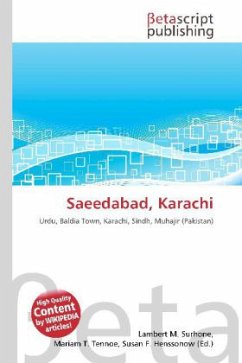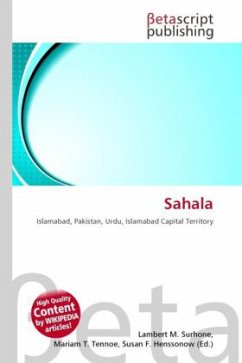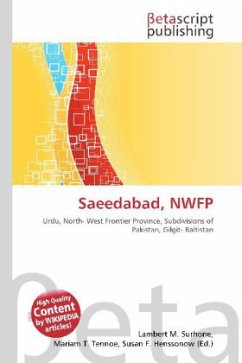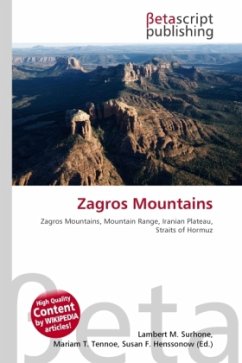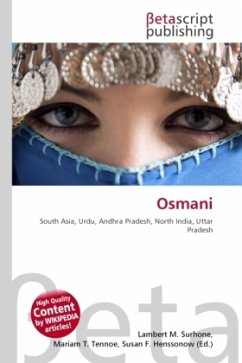
Osmani
Versandkostenfrei!
Versandfertig in 6-10 Tagen
23,99 €
inkl. MwSt.

PAYBACK Punkte
12 °P sammeln!
High Quality Content by WIKIPEDIA articles! The name Osmani was adopted in the 19th Century by a large caste cluster known in North India (the modern Uttar Pradesh, Bihar, Delhi & Madhya Pradesh) as the Behna, and in the Hyderabad state (the modern Andhra Pradesh & Karnataka) as the Nadaf. Their traditional occupation was cotton carding. The Behna would strike a bow with a heavy wooden plectrum, uses the vibrations to separate the fibres of the cotton, to arrange them side by side, and to part them from dirt and other impurities. In the 19th Century, as western education spread in India, the B...
High Quality Content by WIKIPEDIA articles! The name Osmani was adopted in the 19th Century by a large caste cluster known in North India (the modern Uttar Pradesh, Bihar, Delhi & Madhya Pradesh) as the Behna, and in the Hyderabad state (the modern Andhra Pradesh & Karnataka) as the Nadaf. Their traditional occupation was cotton carding. The Behna would strike a bow with a heavy wooden plectrum, uses the vibrations to separate the fibres of the cotton, to arrange them side by side, and to part them from dirt and other impurities. In the 19th Century, as western education spread in India, the Behna abandoned cotton carding and took to business and other professions. In a traditionally stratified society such as India, where caste was prevalent, the members of this community changed its name to Osmani or Shaikh Osmani. The name Dhuna is now obsolete, and members of this caste are simply known as Osmani or Qazi. Sociologists have referred to this as Ashrafization, where as a community improves its status, it tries to claim Arab ancestry.The Dhuna or Behna of Khulna and Murshidabad are Bengali speaking.



